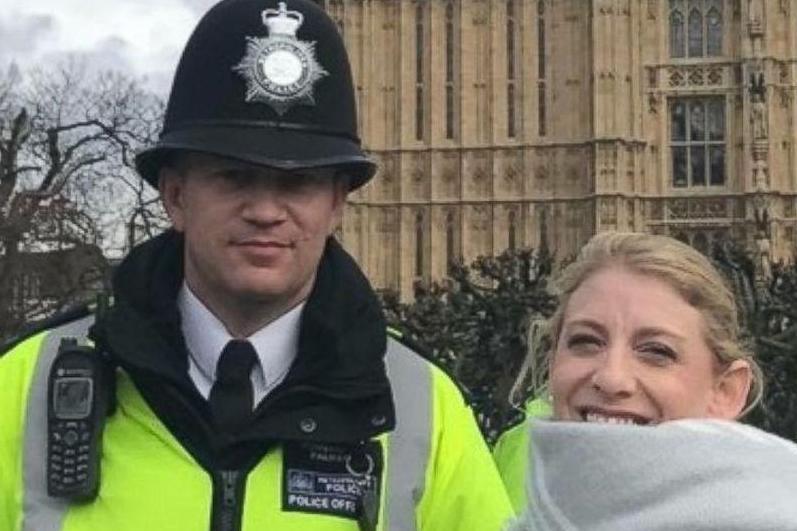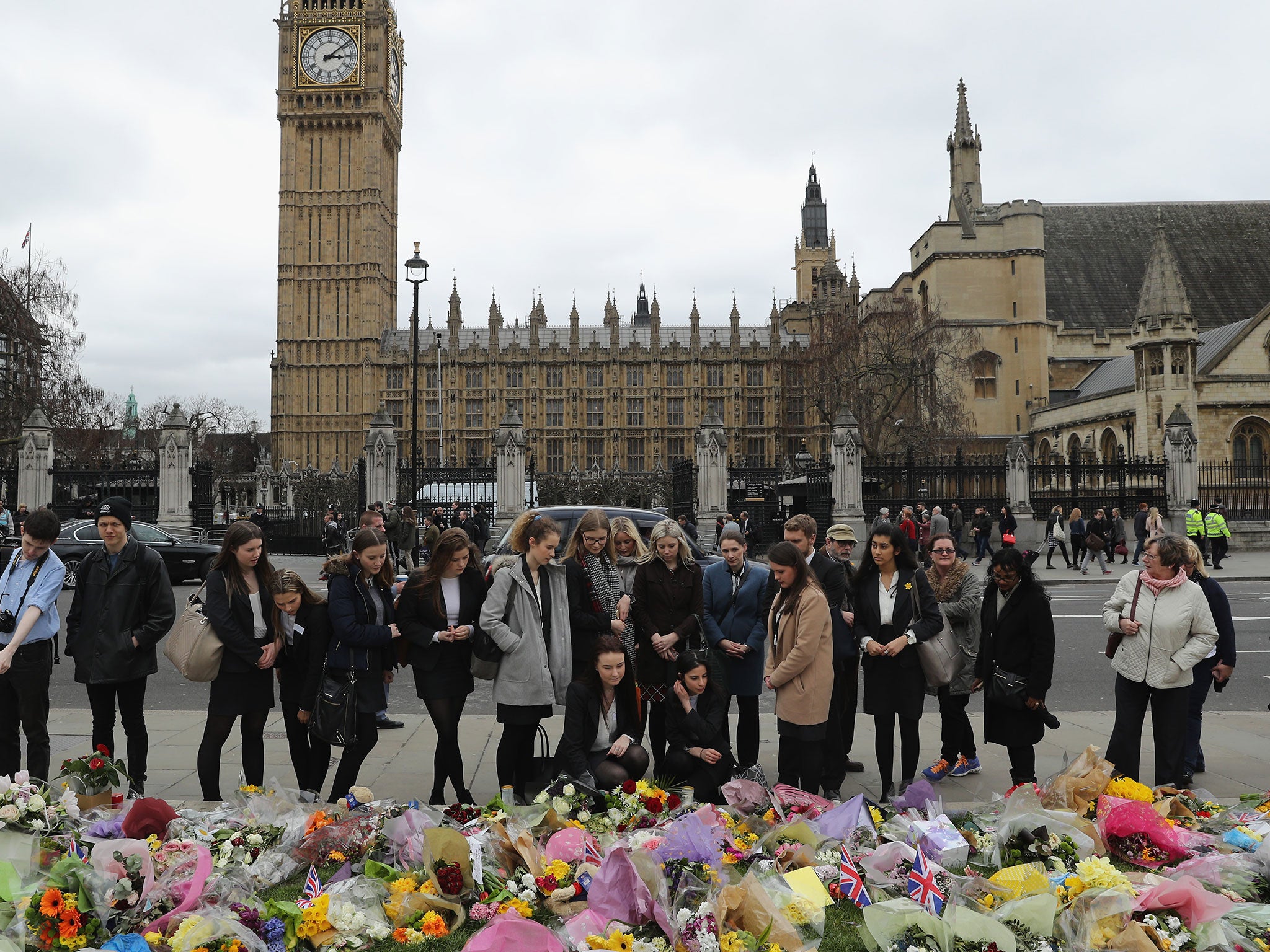‘Future deaths could occur if action is not taken’ to improve Westminster security, coroner warns
Chief coroner calls for armed police to be stationed at every entrance to Houses of Parliament
Your support helps us to tell the story
From reproductive rights to climate change to Big Tech, The Independent is on the ground when the story is developing. Whether it's investigating the financials of Elon Musk's pro-Trump PAC or producing our latest documentary, 'The A Word', which shines a light on the American women fighting for reproductive rights, we know how important it is to parse out the facts from the messaging.
At such a critical moment in US history, we need reporters on the ground. Your donation allows us to keep sending journalists to speak to both sides of the story.
The Independent is trusted by Americans across the entire political spectrum. And unlike many other quality news outlets, we choose not to lock Americans out of our reporting and analysis with paywalls. We believe quality journalism should be available to everyone, paid for by those who can afford it.
Your support makes all the difference.Armed police must be stationed at all entrances to the Houses of Parliament, a coroner has said while warning that more people could be killed if security is not increased.
Mark Lucraft QC, the chief coroner of England and Wales, made a series of recommendations to police, security services, Transport for London and other authorities following inquests into the Westminster terror attack.
“In my opinion, there is a risk that future deaths could occur unless action is taken,” he wrote in a report.
“I believe that the various addressees of this report have the power to take the action relevant to them.”
Judge Lucraft previously found that PC Keith Palmer may have been saved if armed police were stationed at Carriage Gates, outside the Houses of Parliament.
The unarmed officer was stabbed to death by Isis supporter Khalid Masood after he fatally struck four victims on Westminster Bridge in March 2017.
Judge Lucraft said that although the attacker struck at “one of the most vulnerable and public entrances to the parliamentary estate”, armed police were elsewhere on mobile patrol.
He said the Metropolitan Police should station officers with guns “at all open public entry points to the Palace of Westminster” and ensure the instructions cannot be inadvertently changed.
“Given the nature of terrorist threats to this country and its parliament, it is difficult to imagine circumstances in the near future when an open public entry point to the palace should not be protected by armed guards,” the coroner said.

After the inquests heard of “confusion” among officers about how they receive their orders, Judge Lucraft called for changes to the way post instructions are conveyed, to ensure they are seen.
He said Scotland Yard must ensure officers working in Westminster are trained specifically for both lone wolf and multi-actor marauding terror attacks.
A spokesperson for the Metropolitan Police said security reviews were undertaken immediately after the atrocity and improvements have already been made at parliament, alongside other agencies.
She said the force could not disclose specific changes “because it would undermine security” but they have been shared with the chief coroner.
“We have received the detailed report and will now consider his recommendations in full,” a statement added.
A lawyer for PC Palmer’s widow and victim Kurt Cochran’s wife said it was “imperative” measures are implemented to keep cities safe.
"We welcome all these recommendations, in particular in relation to the security arrangements at the Palace of Westminster, and feel it is imperative they are implemented as soon as possible, to keep our cities safe and those who work tirelessly to protect the public,” added Patrick Maguire, of Slater and Gordon.
"It demonstrates that lessons have been learnt from this horrendous attack and it is hoped that by implementing these recommendations, further deaths will be avoided."
Other recommendations included automating Carriage Gates, appointing an external security reviewer for parliament, and new guidance for how unconscious people should be taken out of rivers and canals, after one of Masood’s victims was found in the Thames.
The inquests heard that Masood was known to the security services for his links to extremists but was not being monitored because he was a closed “subject of interest” (SOI), and that no one had anticipated the attack.
Judge Lucraft called on MI5 to start recording the reasons why SOIs like Masood and the Manchester bomber Salman Abedi are closed, to build a better intelligence picture.
“It strikes me that closing a person as an SOI is a positive decision that further investigation is not justified or necessary,” the report said.
“It is not obvious to me that such decisions are so numerous that recording each one with a short rationale would be impracticable. Furthermore, I can see clear operational benefits to corporate memory in having such reasoning recorded which could assist in the fight against terrorist activity.”
Judge Lucraft also called for Transport for London (TfL) to consider improving security on roads and bridges, where barriers have already been installed following the London Bridge attack.
He said the authority should consider raising parapets or adding railings after two of Masood’s victims were sent over the side of Westminster Bridge.
Siwan Hayward, of TfL, said: “We work closely with the police, counterterrorism security advisers, the mayor’s office, Home Office, wider government and others to help protect London from the threat of terrorism. We are carefully considering the coroner’s recommendations in his report and will respond in due course.”

Families of the victims also raised concerns during the inquest that Masood was able to hire a car to use as a lethal weapon, while rental vehicles were also used in the London Bridge and Finsbury Park terror attacks.
Judge Lucraft recommended the Department for Transport and British Vehicle Rental and Leasing Association look at introducing a code of practice on making checks before vehicles are rented.
Jill Greenfield, from Fieldfisher law firm, said the coroner's wide-reaching report was very welcome, specifically the instructions to the motor insurance industry to carry out more detailed checks before renting out particularly heavy vehicles.
She said: ”Given that we're working with victims of terrorist attack at Finsbury Park Mosque and Westminster Bridge where, on both occasion, vehicles were used as weapons to kill and seriously injure people, any additional security that can be introduced to prevent similar attacks in the future is extremely important.“
Respondents have been given until 26 February to reply to the report with what action they are taking.

Join our commenting forum
Join thought-provoking conversations, follow other Independent readers and see their replies
Comments